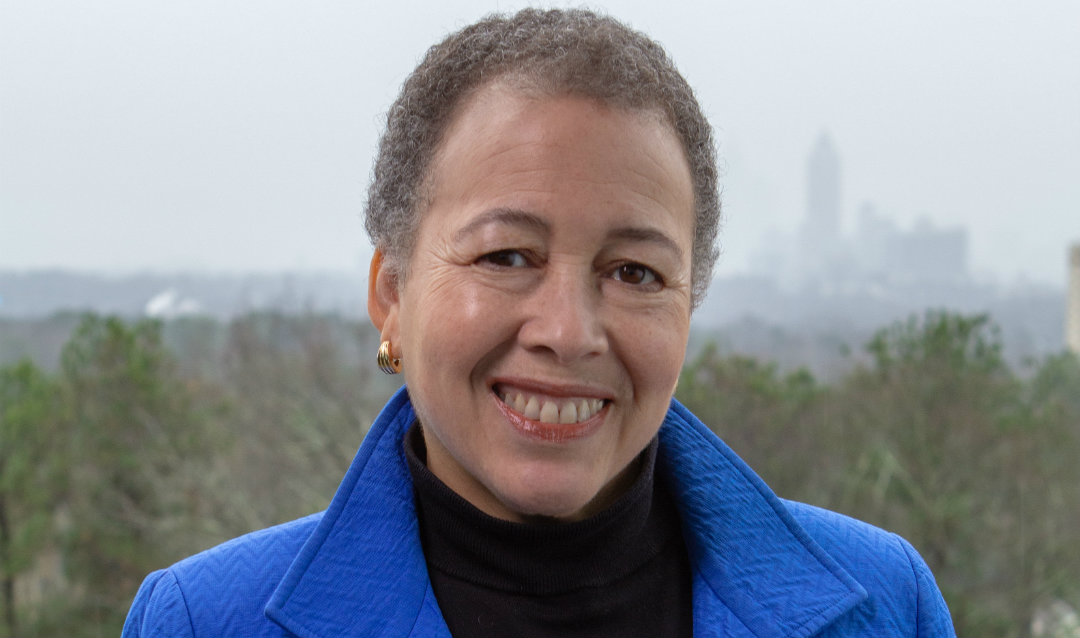Updated: March 17, 2021
Spelman College President Emerita Beverly Daniel Tatum, a clinical psychologist widely known as an expert in race relations and a thought leader in higher education, will host a webinar presentation at 6 p.m. on Tuesday, March 30, 2021. Tatum’s talk, “A Conversation about Race with Dr. Beverly D. Tatum,” is free and open to the public and will be followed by a Q&A session (register here). It will be moderated by Valerie Jones Taylor, assistant professor in psychology and Africana Studies. The discussion, sponsored by the MLK Celebration Committee, was rescheduled from March 2020 because of COVID-19.
In advance of Tatum’s March 30 talk, members of the Lehigh community came together for a live discussion as part of the Community Conversations About Race (CCAR) series. The discussion, hosted by a panel of Lehigh students, was open to all members of the greater Lehigh Valley community and delved into how the broader issues of race, equity and allyship touch students personally.
The centering question was: “Why do so many white people react in fear when they see a group of Black folks coalescing?”, a complementary question to the one Tatum poses in her book— “Why are all the Black kids sitting together in the cafeteria?” Attendees were also asked to engage in smaller groups as part of breakout discussions. A recording of the main discussion will be available on the website.
The discussion served as a primer for Tatum’s talk later in the month.
“As a scholar, advocate, and educator, Dr. Tatum has helped bring awareness to the many ways (subtle and not-so-subtle) that race contributes to the daily experiences of young people in particular, which in turn impact identity formation and social behavior,” said Associate Professor of Psychology Christopher Burke. “She has pointed to the need for earnest and ongoing conversation about race and racism for achieving lasting social change.”
A modern classic on race
Tatum is the author of several books, including the best-selling “Why Are All the Black Kids Sitting Together in the Cafeteria?”and Other Conversations About Race and Can We Talk About Race? and Other Conversations in an Era of School Resegregation. Her first book is considered a modern classic in the classrooms of high schools and colleges across the country, serving as a prompt for candid student discussions on race.
Her first project after stepping down from the Spelman presidency in 2015 was updating the book to include the Obama and Trump presidencies, the Black Lives Matter movement, the Great Recession of 2008, affirmative action backlash and police shootings of citizens. The 20th anniversary edition of her book was released in 2017, and ends on an optimistic note.
“There is no question that we are living in a difficult time, and recent events in Charlottesville and elsewhere have been very disturbing,” she told a writer for Inside Higher Ed in 2017. “I work at maintaining my optimism because I believe that in times of darkness, we all need to generate more light. The epilogue is titled ‘Signs of Hope, Sites of Progress,’ because we all need to remember that each of us can exercise the kind of inclusive leadership we need to interrupt the cycle of racism. With the collective hard work and effort of many, I still believe positive social change is possible.”
Tatum is a sought-after speaker, with particular expertise on the topics of racial identity development, race and education, strategies for creating inclusive campus environments and higher education leadership.
She was awarded the prestigious Brock International Prize in Education for her innovative leadership in the field in 2005, and was the 2014 recipient of the American Psychological Association (APA) Award for Outstanding Lifetime Contributions to Psychology.
A civic leader in the Atlanta community, Tatum is engaged in educational initiatives designed to expand educational opportunity for underserved students and their families. She serves on the governing boards of the Westside Future Fund, Achieve Atlanta, Morehouse College, the Tull Charitable Foundation and the Georgia Power Company. She is also on the boards of Smith College. TIAA Charitable and the Educational Testing Service. She holds a B.A. degree in psychology from Wesleyan University, and M.A. and Ph.D. in clinical psychology from the University of Michigan, as well as an M.A. in Religious Studies from Hartford Seminary.
Her 13-year presidency at Spelman College (2002-2015) was marked by innovation and growth, and her visionary leadership was recognized in 2013 with the Carnegie Academic Leadership Award. Over the course of her career, she has served as a faculty member at the University of California, Santa Barbara, Westfield State University, and Mount Holyoke College, where she also served as dean and acting president. During Spring 2017, she was the Mimi and Peter E. Haas Distinguished Visitor at Stanford University.





